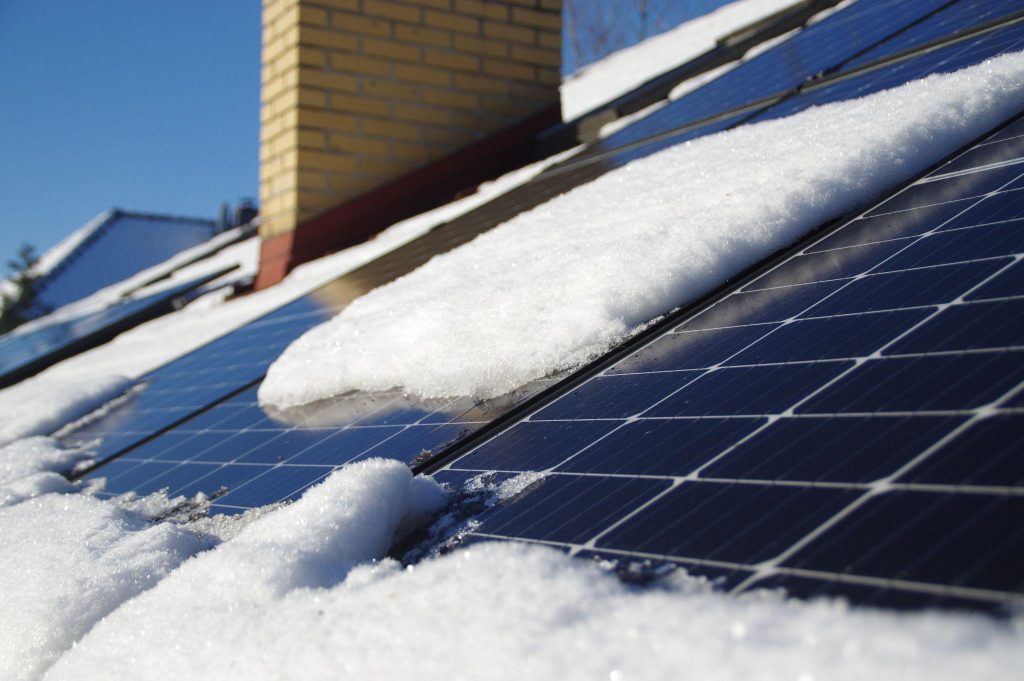
Clearing up the misconceptions about solar panels and their seasonal performance
When people think of solar energy, they usually imagine a bright, sunny summer day—clear skies, blazing sunshine, and solar panels soaking up all that glorious energy. But as soon as winter enters the picture, doubts start creeping in. “Do solar panels even work in winter?” “What happens when it snows?”
Well, let me tell you something that might surprise you—solar panels don’t take a vacation when the weather gets chilly. Winter might just be their underdog season. Let’s bust some myths and set the record straight on why solar energy doesn’t stop when the temperature drops.
Myth 1: Solar Panels Stop Working in Winter
Here’s the truth: solar panels don’t rely on heat to produce energy—they rely on sunlight. So, as long as there’s daylight, your panels will keep generating electricity, even on cold, cloudy days.
Solar panels are more efficient in cooler temperatures. Heat can reduce their efficiency, so winter’s crisp air can improve their performance. Germany, a nation known for its cold and cloudy winters, is one of the biggest solar energy producers. If it works there, why not here in Pakistan?
Myth 2: Snow Covers Panels and Blocks Energy Generation
Yes, snow can cover your panels, but let’s be real—how often does it snow in most parts of Pakistan? Even in areas like Murree or Gilgit, where snowfall is common, solar panels are designed at an angle, allowing snow to slide off naturally. Plus, sunlight can still penetrate thin layers of snow, so your panels don’t go completely out of commission.
Think of it this way: if you leave your car in the sun with a light dusting of snow on the windshield, doesn’t the snow melt fairly quickly? The same principle applies to solar panels. And hey, if you’re in a snowy region, a quick sweep can do wonders.
Myth 3: Shorter Days Mean Solar Panels Don’t Generate Enough Energy
Winter days are indeed shorter, but that doesn’t mean solar panels stop being productive. While the total energy output might dip compared to summer, modern solar systems are designed to maximize efficiency even in low-light conditions.
This is where energy storage comes into play. By pairing your solar panels with a good battery system, you can store the energy generated during the day and use it at night or on particularly cloudy days. Curious about how solar works when the sun goes down? Check out my blog, How Solar Works at Night (and Why Batteries Matter).
Why Solar Panels Are a Year-Round Champion
Let’s talk numbers. According to industry research, well-maintained solar panels can generate 10-25% of their annual energy output during winter months. That’s a decent chunk of energy!
Here’s another way to look at it: imagine solar panels as marathon runners. They don’t sprint during winter, but they keep a steady pace. For the year, they balance out the energy generation, so you’re not left high and dry in colder months.
The Pakistani Perspective: Winter Solar in Action
Now, let’s bring it closer to home. Pakistan’s diverse climate means solar systems can thrive in all seasons. In most regions, winters are mild and sunny—perfect conditions for efficient solar generation.
Even in colder, hilly areas, the combination of solar panels and batteries can provide reliable energy for heating, lighting, and appliances. Plus, with rising electricity costs, going solar can save you money regardless of the season.
And if you’re worried about maintenance during winter, don’t be. Solar panels are low-maintenance by design. A periodic check to clear off dust, leaves, or snow (if applicable) is usually all it takes.
Why Believe in Solar All Year Round?
Solar energy isn’t just a summer fling—it’s a long-term commitment to sustainability and savings. Winter may throw a few challenges your way, but with the right setup and a bit of planning, those challenges are easy to overcome.
Think of solar panels like a loyal friend—they show up for you every day, no matter the weather. And in a country like Pakistan, where the energy crisis looms large, we need all the friends we can get!
Don’t Let Winter Fool You
Winter isn’t the end of solar energy—it’s just a different chapter in its story. The sun may be lower in the sky, and the days may be shorter, but the potential is still there, waiting to be tapped. So, what’s stopping you from going solar?
Let’s break free from the myths and embrace a cleaner, greener future, one sunny (or cloudy) day at a time. After all, the sun doesn’t discriminate between seasons—why should we?







